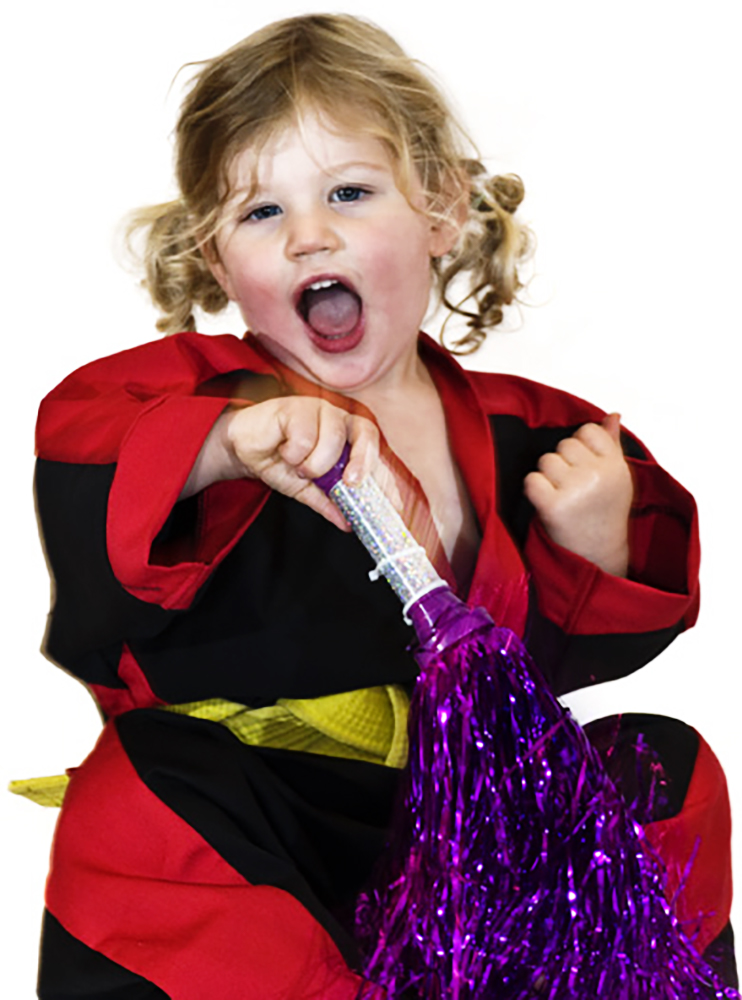HERE'S HOW THE MINI SKILLZ PROGRAMME WORKS:
By understanding the stages of development of 18 to 36 month olds, we were able to select the age-appropriate skills that make up the Mini SKILLZ™ Programme:
- We cover one developmental skill per class, including: STEPPING, LISTENING, PATIENCE, RESPECT, JUMPING, THINKING, FOLLOWING & SHARING.
- During each class we run a warm-up; deliver a quick mat-chat about the skill; run skill-building drills; and then have a milestone checkpoint to see which stage they are at for the day’s skill.
- We finish the class with a cool-down and social game.
- We repeat the same format with each class, rotating through each skill.
- Once they reach the age of 3, they are now ready for the next programme, Early SKILLZ for 3 and 4 year olds.
THIS IS NOT A TYPICAL TODDLER PROGRAMME!
We integrate an extensive amount of research and development into a programme that is appropriate for this age, while at the same time advancing them beyond their current stage of development. This means that each child will learn and grow at a faster pace than the average toddler. The best part is the Mini SKILLZ programme is a great way for them to bond with you as well!
PHYSICAL DEVELOPMENT
Physically, toddlers are very active but don’t have much control of their movements.
We expect them to stumble on most activities and show very little skill in their gross and fine motor skills. The physical goals for our programme are to get them to perform basic exercises and activities with control such as stepping and jumping without falling, kicking while bending their knees, and punching while pulling their other hand back.
INTELLECTUAL DEVELOPMENT
We expect toddlers to lose focus often during class and quickly become distracted.
Their thinking skills are all across the board, which makes it hard for them to anticipate what’s coming next. Therefore, their attention span will be very limited. The intellectual goals for our programme are to get them to focus on the task at hand with minimal distractions, such as listening to the instructor, thinking about what comes next in activities and following directions.
EMOTIONAL DEVELOPMENT
Our goal is to help the toddlers have patience during activities, even when they are challenging.
Their feelings are very strong but they are still not at the stage to recognise why. Therefore, they will show a wide range of strong emotions that are not quickly controllable. We expect them to throw temper tantrums when they don’t get their way and run around uncontrollably if they get too excited.
SOCIAL DEVELOPMENT
Language development has a big impact on toddlers social development.
They will imitate others but will quickly fight for personal space when they feel too crowded. We expect them to interact on a very basic level but at the same time be more involved in “parallel” play. The social goals for our programme are to help them interact positively by sharing as well as showing respect to the other people in class.
MORE BENEFITS
- Children learn how to listen respectfully to others without interruptions.
- Our students learn the value of discipline as they pursue clearly-defined goals.
- Martial arts instruction teaches children how to accept defeat and learn from their mistakes.
- Martial arts helps children build core strength, balance and physical coordination.
Book Here




